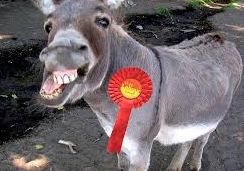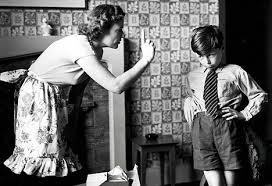- Round Robin - 19th February 2026
- Dark speak easy part one - 18th February 2026
- X marks the spot again - 17th February 2026

During 23 years with the BBC, and a 40 year journalistic career (when he was trained to use clear and simple language, avoiding jargon), our Editor, Welshman Phil Parry, closely studied different electoral systems, and now this is highlighted by controversy growing over the fact that Labour in Westminster won 63 per cent of the seats on only a third of the vote. People today are preparing for a new method to elect members of the Welsh Parliament/Senedd (WP/S), but critics claim they may be “confused”.

Pity the poor voter.
The beauty of First Past The Post (FPTP) is that it is SIMPLE and therefore leads to a higher turnout.
I am NOT saying I agree with it, this is just a statement of fact.
FPTP does throw up anomalies, which many want now to fix, and they have been put centre stage by what happened in the General Election (GE).

They have prompted complaints from some smaller parties, and a few smarting Conservatives, that the result was unfair.
Even by the standards of FPTP, this result was extraordinary. Labour won 63 per cemt of the seats with just 34 per cent of the vote.
It garnered 42 seats for every one million votes it received. The Liberal Democrats were as ruthless as Labour in exploiting the system, taking 72 seats with just 12 per cent of the vote.

What did Reform UK get for its 4.1 million votes, almost 600,000 more than the Lib Dems?
Five seats.
Some 58 per cent of voters backed a candidate who did not win; the average across post-war elections has been 47 per cent.
But tinkering with an electoral system is extremely dangerous, and can lead to lower turnouts because voters simply do not understand it.

It seems pertinent now to revisit this debate as Wales is about to usher in a new method, with an expansion of the Welsh Parliament/Senedd (WP/S), and criticism concerning it is mounting.
The plans are to increase membership of the WP/S, following a report by a special committee, which endorsed proposals put forward by Labour and Plaid Cymru, meaning that Wales will be divided into 16 new constituencies, with six members each.


But how will turnout be affected, and will voters understand what is happening?
Even before these changes are enacted, the WAY they are being used has come under fire.
Member of the Senedd (MS) Mike Hedges criticised the closed lists system his own party will use to elect a larger body with more members.

There have been accusations that voters will be “confused”.
At the next WP/S election the representative body will be revamped, expanding from 60 to 96 members.
They will be elected from the 16 new constituencies, formed by merging 32 Westminster constituencies.

Each constituency will elect six candidates through a closed list (which Mr Hedges apparently doesn’t like). Voters will pick one party they want to support, but will not be able to pick a specific candidate.
Candidates will then be elected through a system of Proportional Representation (PR).
At the last WP/S election voters got two votes, one for a politician elected through FPTP, and one for a party elected through a party list. It was a form of PR which was meant to ensure that Labour would not dominate.

However Labour have been in power (sometimes in coalition), ever since the WP/S opened its doors in 1999, and the turnout has been nothing to write home about.
The new system is even more complicated, and it has sparked concerns that it could reduce choice and erode trust.
It will mean that one party does not get loads of seats on a tiny share of the vote, but could also mean that voters don’t understand it, so will not be bothered to trudge to their polling booth.

You may be fixing one problem, for another to arise…
Some of the political stories Phil has covered over the years (including the different electoral systems), as he was gripped by the rare neurological condition Hereditary Spastic Paraplegia (HSP), have been released in a major book ‘A GOOD STORY’. Order it now!
Regrettably publication of another book, however, was refused, because it was to have included names.

Tomorrow – ‘Sorry is still the hardest word, part three’ where Phil looks at how a proper apology for a mistake is almost NEVER made, and more evidence today underlines this salient fact.









